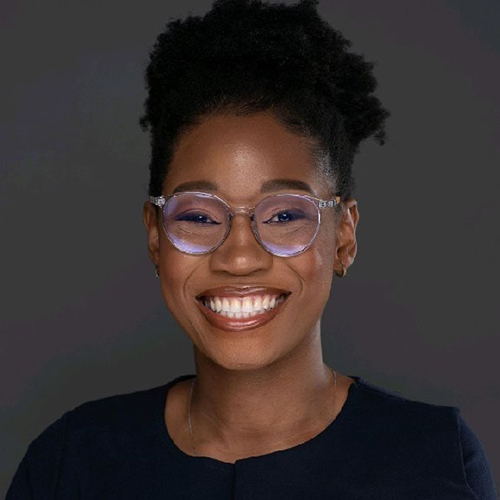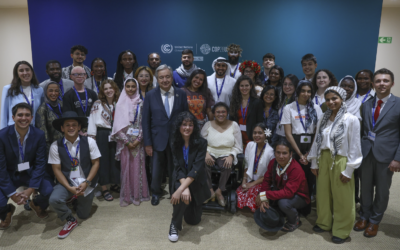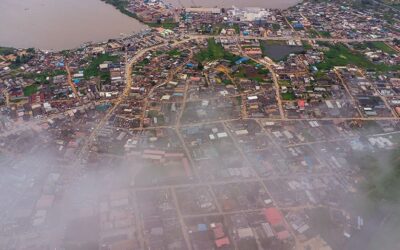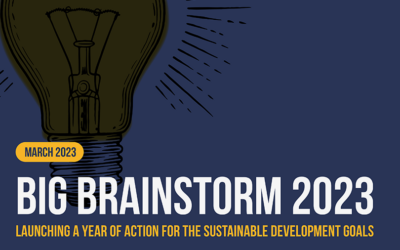By Kelechi Achinonu – United Nations Foundation Next Generation Fellow for Justice
Imagine a world where the children in Gaza play hopscotch on rubble, not bombs; where conflict no longer defines headlines; bridges replace walls; and hope blossoms even in the darkest corners. This vision was at the heart of the 3rd Global Peace Summit, organised by Humanitarian Affairs Asia, and it reshaped my perception of global peace and my role in it.
As a young justice advocate and the United Nations Foundation Next Generation Fellow for Justice, I’ve been involved in exploring and addressing issues of peace and access to justice, particularly in my home country, Nigeria. As I walked into the conference hall, surrounded by 349 other delegates from over 47 countries, I felt a sense of unity in our shared purpose. Having young people gather in one space to share their understanding of peace was genuinely inspiring and gave me hope for a better future.
The conference, which was held from 10 – 12 January 2024 at the United Nations Conference Centre in Bangkok, Thailand, was intense, with each passing day bringing even more inspiration. I remember Mr. Kim Solomon’s opening words: that we should expand our horizons beyond the familiar. Each session I attended, and each story I heard, was like peering through a kaleidoscope of resilience and hope. The narratives of His Excellency Ambassador Walid Abu Ali, Ambassador of Palestine to Thailand and Malaysia, provided profound insights into the Israel-Palestine conflict that has claimed many lives. The stories of Nivine Sandouka and Loung Ung weren’t just stories; they were lifelines of courage, pulling us towards empathy and understanding.
Hassan Akkad’s story was inspiring and funny (he tried to make us laugh despite how intense his story was). He was arrested and tortured by officials of the Syrian government at the time, for protesting against the ill-treatment of people within his community. This reminded me of the experiences of Nigerian youths and the incidents that led to the End Sars Protest in 2020. The story of Antoinette Mutabazi is one that truly inspires me. As a survivor of the Rwandan genocide, she has seen unimaginable horrors and yet still stands firm in her belief in peace. Her story is a testament to the incredible power of the human spirit to persevere through the toughest times.
We had a letter from the children in Gaza read to us, and it wasn’t just words on paper; they served as a poignant reminder of the real human impact of conflict. (I have a snippet of it here).
One of the critical themes that emerged from the summit was the role of young people in global peace-building. As outlined in “The Road to 2100,” young individuals are essential drivers of global change. Our unique position as young people allows us to challenge existing narratives and bring about transformative solutions for global challenges.
I want to share some important points I took away from the summit and explain what they signify.
1. In every conflict, truth is always the first casualty.
I understood this more when I listened to His Excellency Ambassador Walid Abu Ali speak about the conflict between Palestine and Israel. The amount of misinformation and mismanaged information being circulated is concerning. The complexity of these issues highlights the need to verify information accurately before publishing it.
2. Rebuilding a society always starts in the classroom.
Education is the foundation of any society, and by providing quality education to every child, we can empower the next generation to become active and responsible citizens who can contribute to building a better, fairer, and more sustainable world for all.
3. Wars don’t simply end because you choose to walk away from them.
It is important to remember that just because a conflict does not affect you directly does not mean that you can’t advocate for human rights. We must always stand up against social inequality and speak out for those impacted by it.
4. Document everything – both the good and not-so-good experiences.
Doing this will help you understand your journey of growth, and give points of reflection where it’s needed.
5. The balance of power is on the scale of peace.
The bigger the scale, the bigger the peace. Peace is not just the absence of conflict, but a harmonious and stable society. While a balanced power structure may contribute to stability, history has shown that it’s not enough to ensure a just and equitable world. Building lasting peace requires active efforts to promote sustainable development, intergenerational collaboration, and building institutions that can uphold human rights. It’s only through a comprehensive approach that we can truly tip the scales towards a more harmonious and just global society.
6. Compassion is crucial for us to practice peace daily.
It requires the ability to understand and empathize with others, which in turn leads to more harmonious interactions. By practicing compassion in our daily lives, and seeing people as humans, we can reduce conflicts, promote understanding, and build a more peaceful community.
7. It is normal to feel afraid sometimes, and that’s okay.
In fact, acknowledging fear as a natural part of the human experience is an important step towards personal growth. Fear is a natural response to certain situations, and accepting it can help address underlying issues and move forward in a constructive way. By effectively managing fear, you can develop greater resilience and emotional strength.
8. Don’t be a part of the problem.
Let me give you an example to illustrate this point. Imagine you are walking by a stream, and you notice someone drowning. You decide to jump in to save the person, but unfortunately, you don’t know how to swim, so now you are also in danger. As noble as your intentions were, your actions have only worsened the situation. This concept may be difficult to grasp but is an important lesson.
9. We should be able to contribute to making the world a better place to live in, without losing ourselves.
Be mindful of your mental health. Take care of yourself.
10. Allow yourself to cultivate joy, because it will be the oxygen under your wings when you fly forward.
When we make a conscious effort to focus on the positive things that bring us happiness, we create a strong foundation of positivity that can lift us up during difficult times. So, take some time each day to do something that brings you joy, whether it’s spending time with loved ones, pursuing a hobby, or simply taking a moment to appreciate the beauty of nature.
As a Humanitarian Affairs Peace Ambassador, I recognize my responsibility to embody peace and contribute to its construction. If you’re interested in advocating for change or making the world a better place but wonder how much of an impact your contribution will create, I’m here to remind you that no act is too small. Whether advocating for a ceasefire in a global conflict or within your country, using your influence to promote peace in your community or organization, or engaging with campaigns that promote peace, every step of progress counts towards the world we want. If you’re a young person eager to engage in worldwide efforts to foster sustainable peace and development, I encourage you to join me in the Engine Room, an initiative by the United Nations Foundation. Here, we will actively campaign, mobilize efforts, and influence policymaking to achieve these global goals.
In summary, the 3rd Global Peace Summit serves as a reminder of our collective power and responsibility to act as agents of change. We can build a more peaceful world, but it requires us to be courageous and compassionate, willing to engage with the complexities of global conflicts, and committed to finding solutions that preserve our humanity—a world where the children of Gaza play hopscotch on rubble and not bombs.

Kelechi Achinonu
Kelechi Achinonu is a Nigerian lawyer, UN Foundation Next Generation Fellow for Justice, Regional Head of HiiL’s Justice Accelerator West Africa, and a Young Justice Leader at the Pathfinders for Peaceful, Just and Inclusive Societies. She is also the founder of a media tech platform, Techlawyered.



